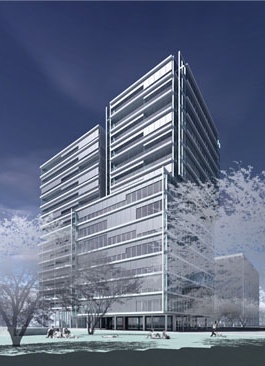
In Prague, there are three times more "green" offices than in Europe
 |
An even more significant share of sustainable office buildings is found in ongoing projects. "Approximately 81% of projects under construction are pre-certified or are seeking certification for green buildings. Of the total area of certified offices, 59% were certified in the project phase and another 41% received certification during operation," stated DTZ, which also noted that the share of "green" buildings will continue to rise.
The so-called green certificate, of which several types are used in the Czech market, indicates, for example, that environmentally friendly and resource-saving materials were used in construction. The energy efficiency of buildings, health and quality of the indoor environment, transport accessibility, water management, and waste management are also assessed.
However, certification currently mainly pertains to administrative buildings. DTZ registers only 59,300 m² of eco-friendly logistics or production spaces throughout the Czech Republic, with an additional 42,000 m² trying to obtain certification. This corresponds to roughly one percent of the total capacity of industrial areas.
There is a slight increase in the number of environmentally built shopping centers. Some type of environmental certification now belongs to six centers: Forum Karolina Nová Ostrava, the expanded part of Centrum Černý Most, Centrum Chodov, Centrum OC Nisa Liberec, the Olympia Plzeň shopping center, and the Breda & Weinstein shopping center in Opava.
According to the European directive on the energy performance of buildings, which the Czech Republic implemented in 2012, all new buildings constructed after 2018 must have nearly zero energy consumption. However, there is currently a very minimal number of commercial buildings in Europe that would meet this requirement. In the Czech Republic, a project called Parkview in Prague's Pankrác area by Skanska should have nearly zero energy consumption. Other projects with nearly zero energy consumption include the planned phase of the Futurama Business Park by Erste Group Immorent in Prague's Karlín district.
The English translation is powered by AI tool. Switch to Czech to view the original text source.
0 comments
add comment








